03:29
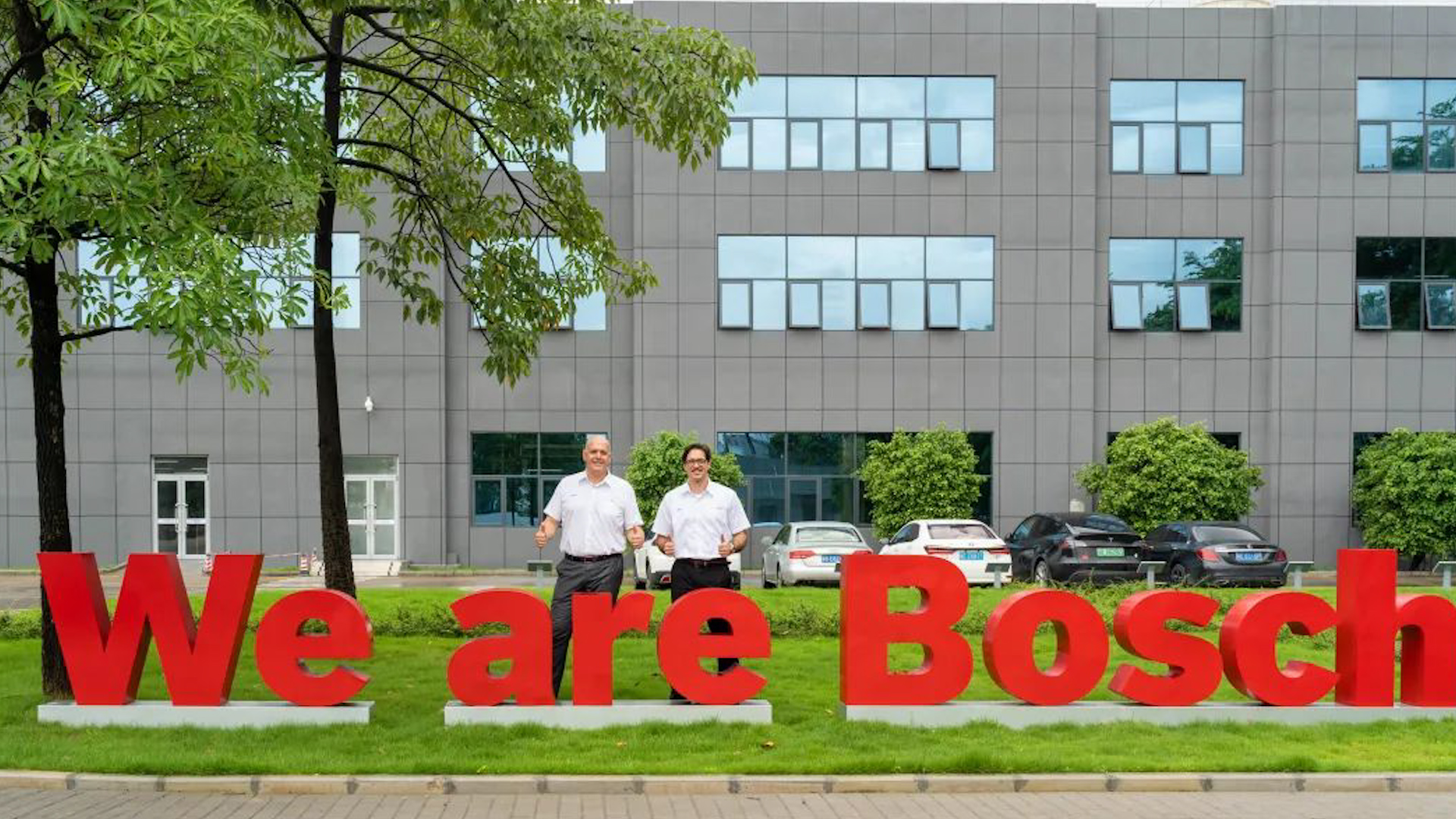
Editor’s Note:Shenzhen Daily has joined hands with the Information Office of Shenzhen Municipal People's Government to launch a series of reports titled “Decade of Transformation,” to tell the story of Shenzhen in the eyes of expats. Rafael Saavedra, a popular YouTuber who has been living and working in China for seven years, will host the series, showing you Shenzhen, a dynamic and energetic city from the perspective of 60 expats. This is the second story of the series.
Italian Marco Morea and German Sebastian Hardt both have been working for Bosch Group for a long time and decided to move to the company’s Shenzhen location. Under their leadership, the Bosch Shenzhen plant has invested strongly in its support of the city’s green transformation.
Shenzhen is planning a new model of smart urban growth with green wisdom, insisting on an ecological priority. The city is strengthening its integration of land and sea transportation, together with regional ecological joint prevention and treatment to enhance disaster prevention capacity. The city is also working to develop green industries, creating a green and healthy living environments and building a new pattern of green developments with the intent of attaining carbon peak and carbon neutrality goals.
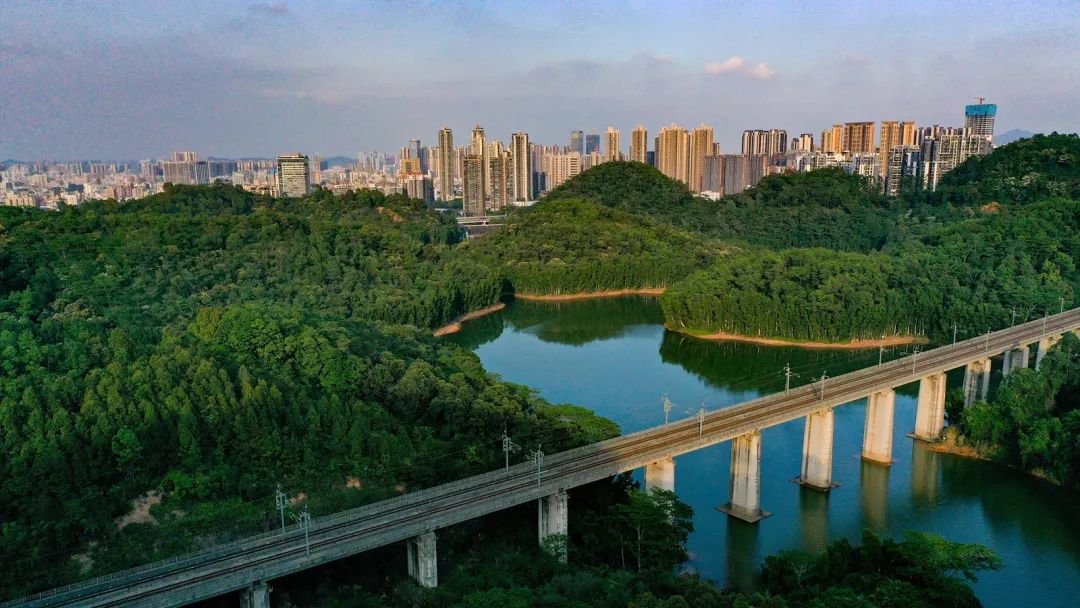
A view of the city from Yangtai Mountain, photo by Liu Xudong.
A view of the city from Yangtai Mountain, photo by Liu Xudong.
Having achieved great economic success over the past decades, Shenzhen has gone all out to transform itself into one of China’s most sustainable cities. This cannot be done without the support of companies contributing to the city.
The Bosch Shenzhen plant is among those that have powerfully invested to support the city’s efforts toward environmental protection.
Italian Marco Morea, 50, and German Sebastian Hardt, 41, have been working for Bosch Group for a long time and decided to move to the company’s Shenzhen location.
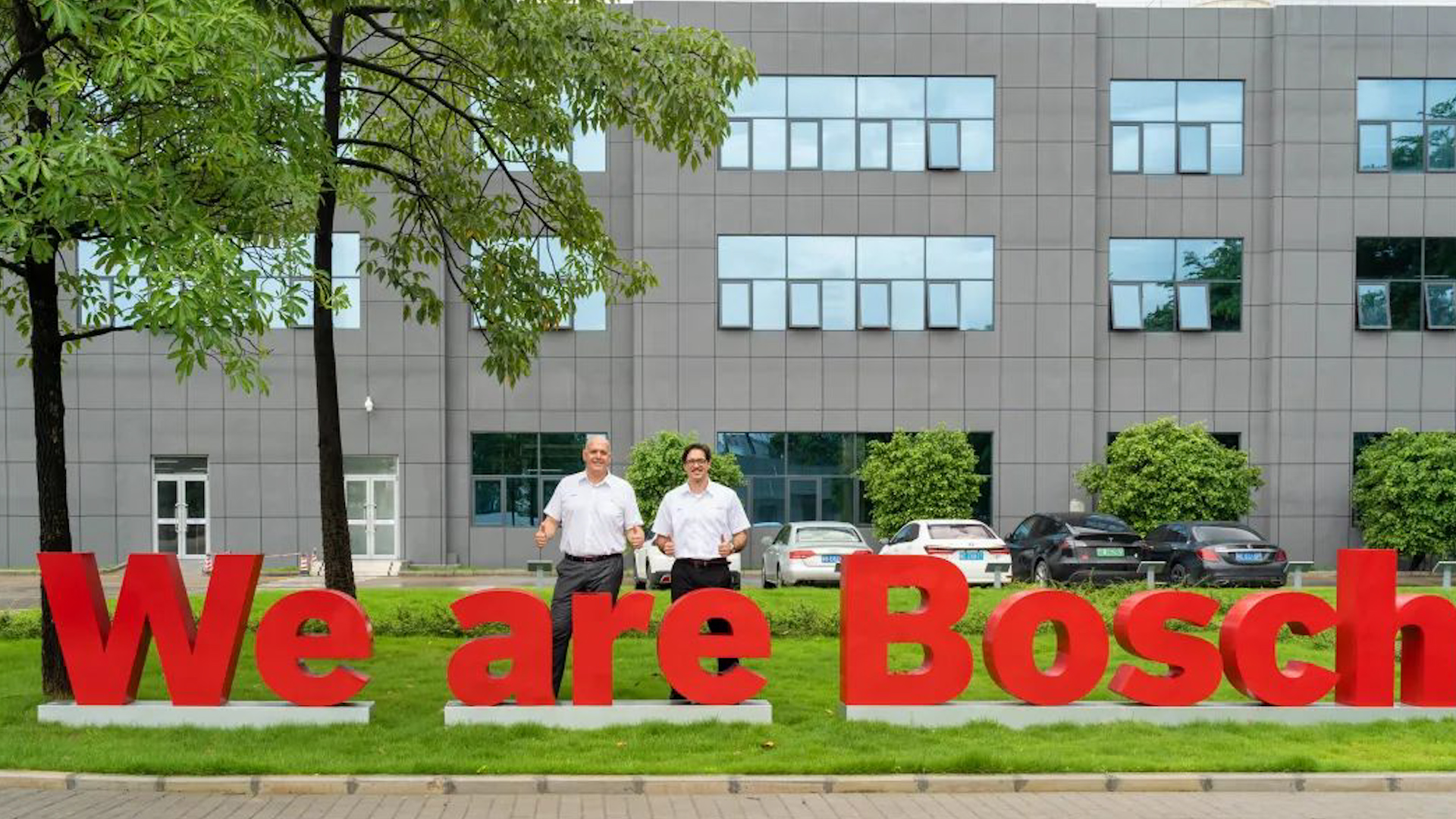
Marco Morea (L) and Sebastian Hardt pose for a photo at the Bosch Shenzhen plant.
Marco Morea (L) and Sebastian Hardt pose for a photo at the Bosch Shenzhen plant.
Morea, plant manager of the Bosch Shenzhen plant, has been working for Bosch Group for 25 years in different locations around the globe. After working for some years, he applied for a higher position and was designated as the plant manager in Taiwan in 2018. This lean manufacturing specialist moved to Shenzhen from Taiwan in March 2020.
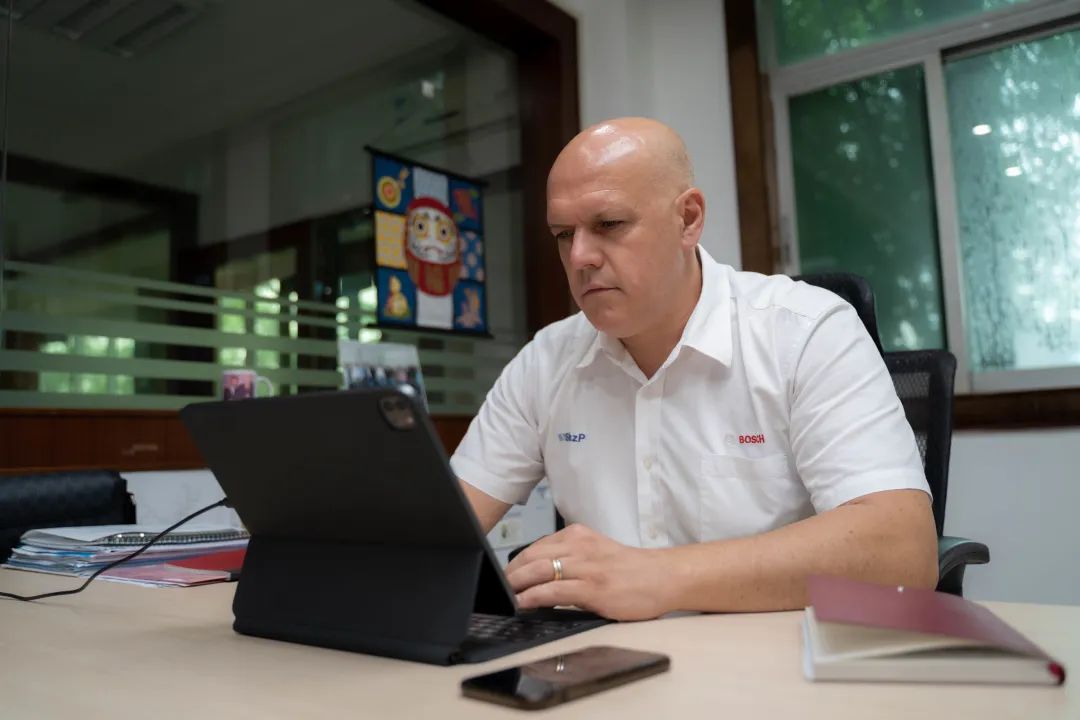
Marco Morea works in his office.
Marco Morea works in his office.
“The city is a quite developed and west-oriented city. That’s why you feel like you were in Europe, because of the whole environment,” Morea said.
As for Hardt, commercial director of the Bosch Shenzhen plant, he came to Shenzhen in November 2019 after working for Bosch for 11 years. “I came to China because it is a great opportunity, professionally, to become a commercial director at a manufacturing site,” he told Shenzhen Daily.
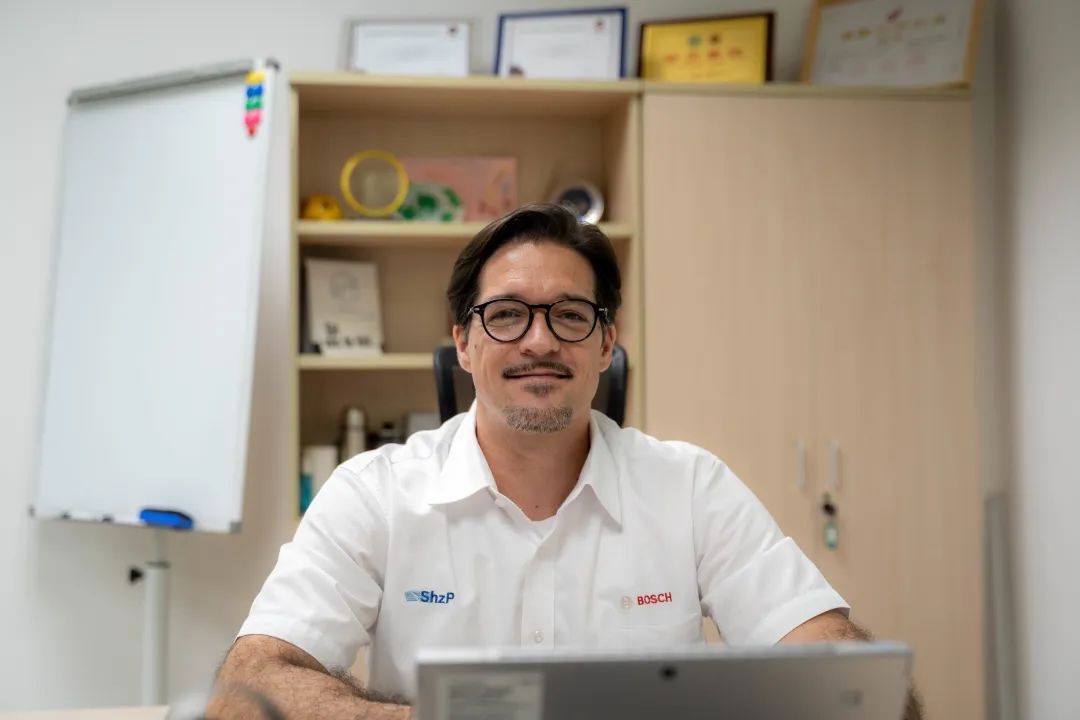
Sebastian Hardt receives an exclusive interview with Shenzhen Daily in his office.
Sebastian Hardt receives an exclusive interview with Shenzhen Daily in his office.
“I grew up in a very small village with 3,500 people, and then you come to a big city like Shenzhen with, I don’t know, 18 million people, so of course it’s big, it’s loud, and it’s sometimes a little hectic. But when you live here, you of course also experience all the convenience and the positive things of living in a big city,” Hardt said.
Hardt loves ordering things online and enjoys the life here. “I like the technology in Shenzhen. You do everything with your phone. You pay everything with your phone. And I love all the electric cars in Shenzhen. I am very impressed that basically all the taxis are electric vehicles. I like the public transportation. So after living here for a while, I’ve come to enjoy the advantages of living in a very big, modern city.”
“When you look at the overall picture, let’s say the high-end technology, I think there’s no better place to do the business than here in Shenzhen. You have all these very famous companies, you have a lot of start-ups, and you of course also attract the right people. You have all the big companies including Huawei, BYD… and you could name all of them, they are all located in Shenzhen,” he also said.
Shenzhen is sparing no efforts to improve its ecological environment and focuses more on developing industries such as network and communications, advanced manufacturing, fashion, intelligent robotics, and design and biomedicine. Similarly, traditional manufacturers like Bosch Shenzhen plant are also committed to this green transformation.
According to Hardt, Bosch is very famous worldwide for its focus on environmental protection and social responsibilities. “It’s basically one of our core values to try to get better and we are carbon neutral within Bosch, and of course this is the achievement of each location,” he said.
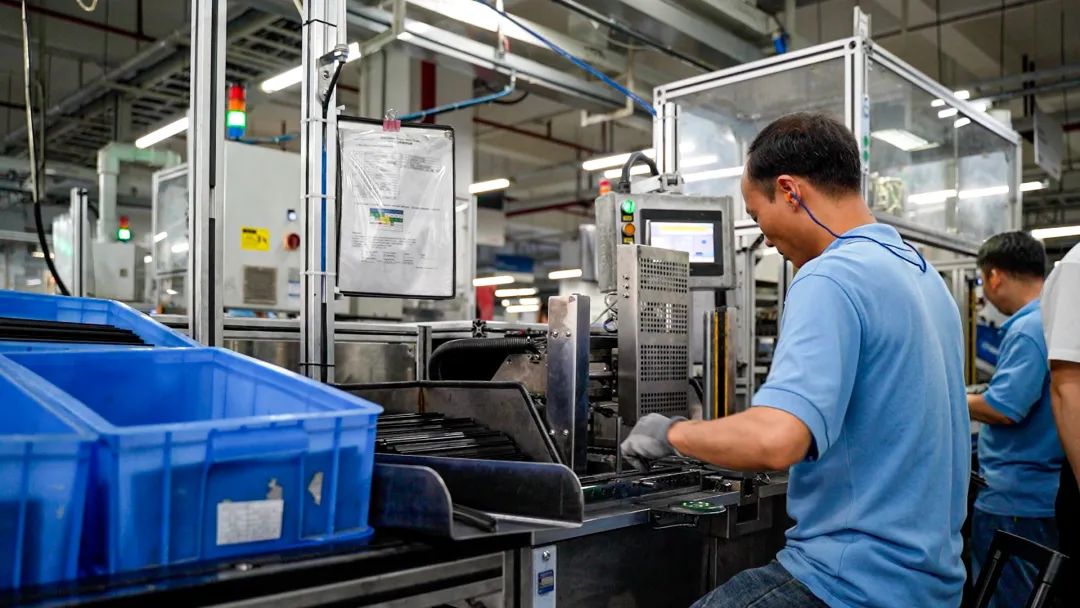
Workers work in the Bosch Shenzhen plant.
Workers work in the Bosch Shenzhen plant.
Like other companies, the Bosch Shenzhen plant was affected by the pandemic. However, with strong government support, the plant has been running well and also increased its sales.
Though affected by the pandemic at the beginning of 2020, they produced a lot in the second half of the year. In 2021, the plant ran smoothly without really being affected.
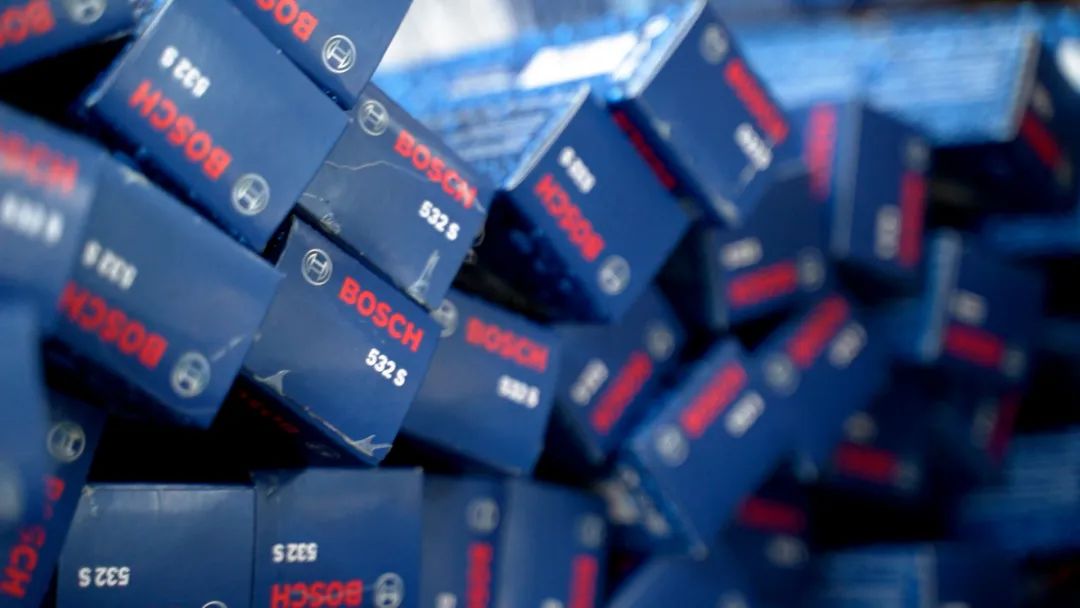
Some products the Bosch Shenzhen plant produces.
Some products the Bosch Shenzhen plant produces.
According to Hardt, in general, their wiper blade business has not been affected by the pandemic but has actually achieved growth. “Over the last three years, our sales have been increasing. We now produce more wiper blades than ever before,” Hardt said.
In terms of the wiper arm business, Hardt said that they were affected by the pandemic in the first half of the year. “But right now, we see that basically all the orders are being pushed into later this year. So, for the wiper arm business we also see a very heavy increase of orders, which is really good,” said Hardt.
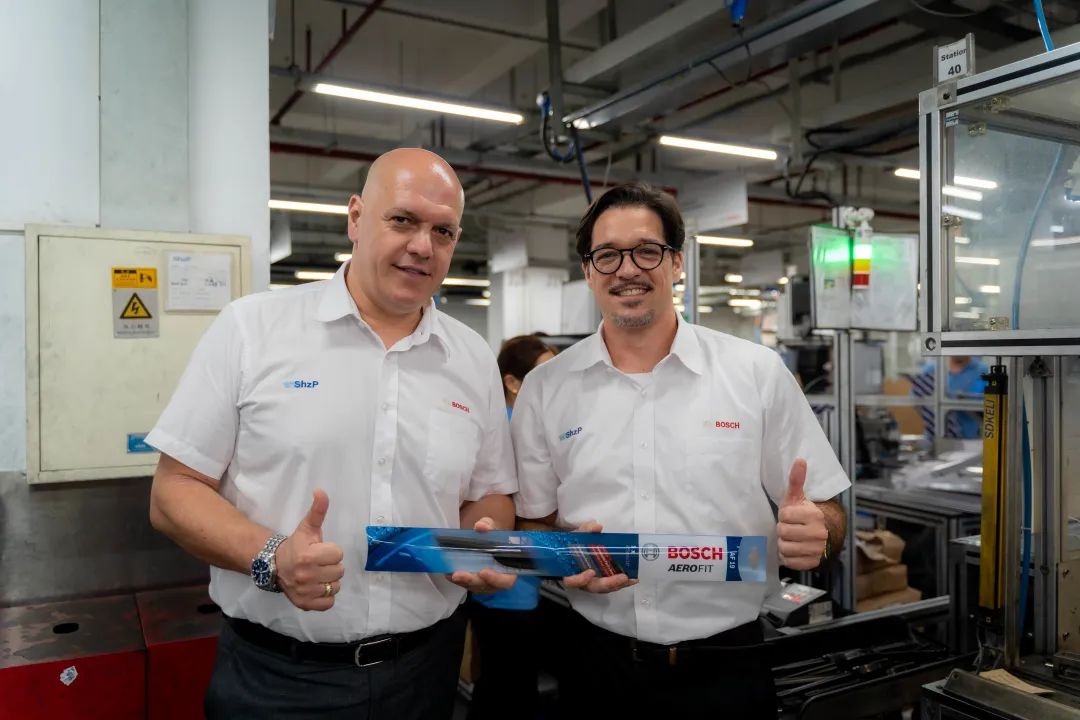
Marco Morea (L) and Sebastian Hardt show one of their products.
Marco Morea (L) and Sebastian Hardt show one of their products.
During the pandemic they also received government subsidies for social insurance, energy costs, electricity, medication and disinfection, according to Hardt.
For more, check out our exclusive content on CGTN Now and subscribe to our weekly newsletter, The China Report.

